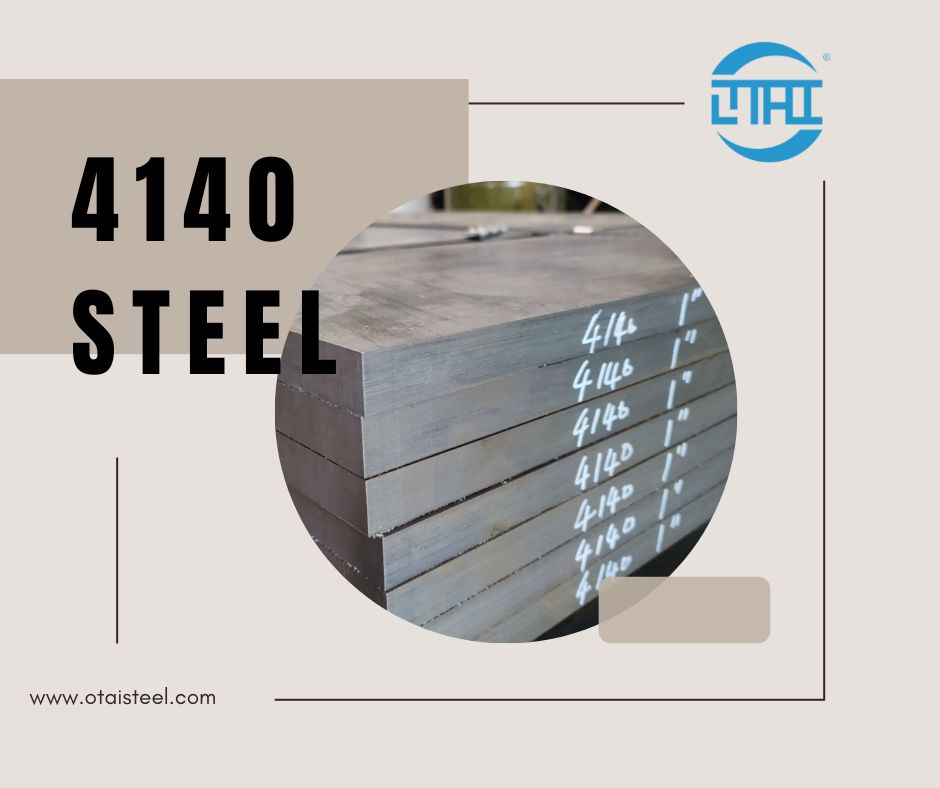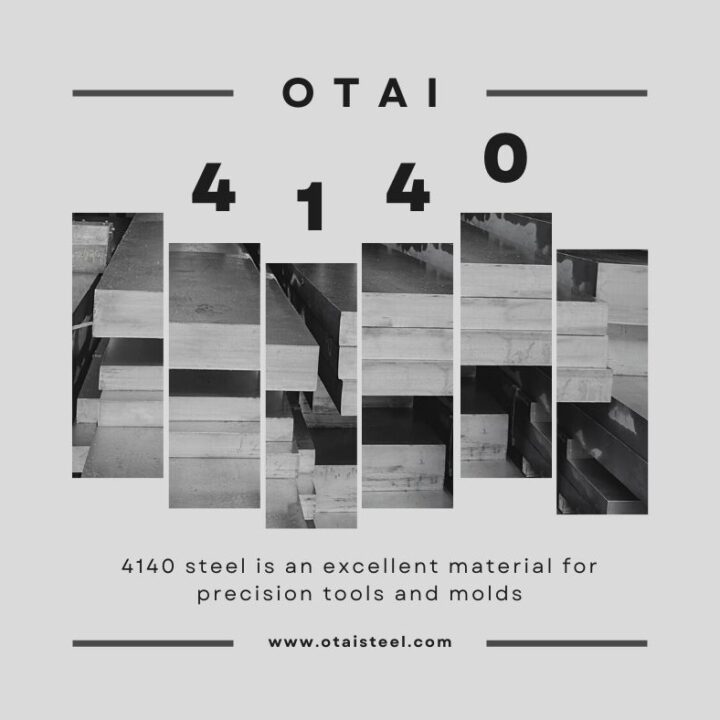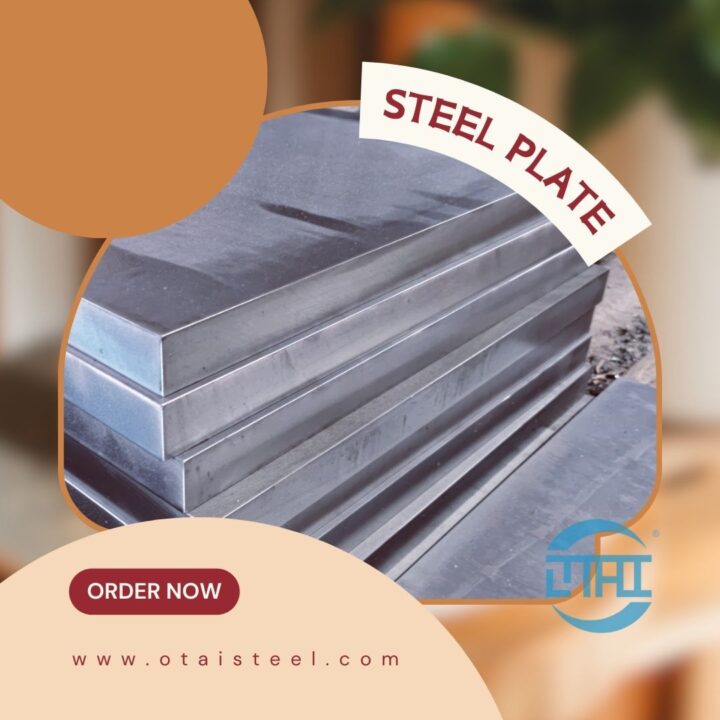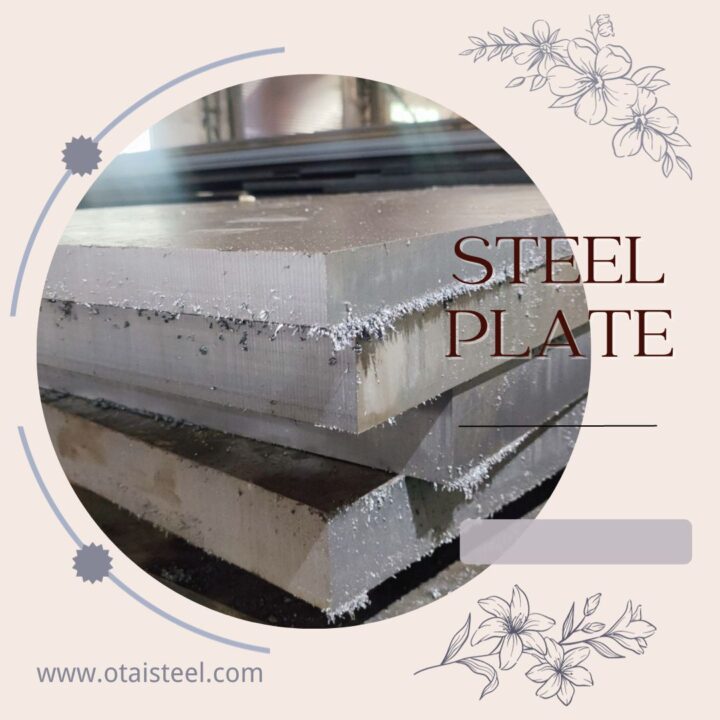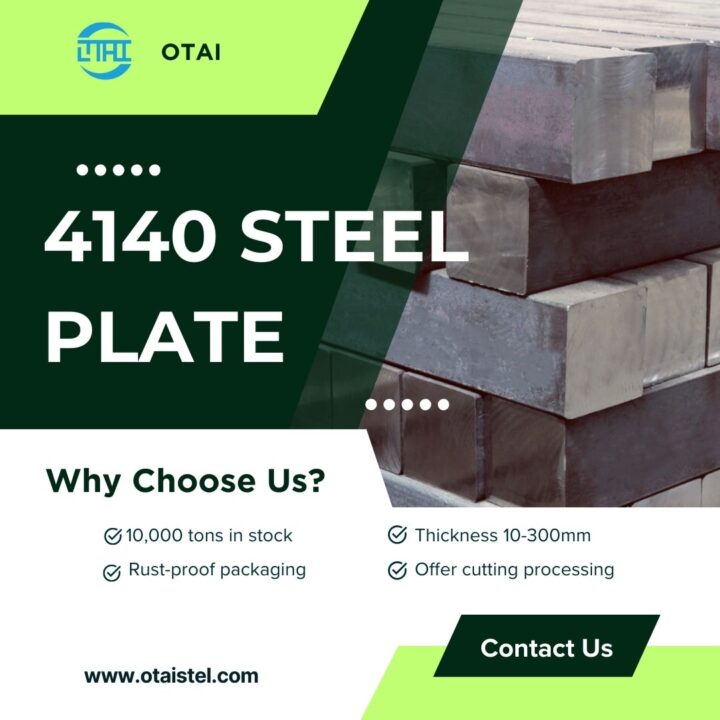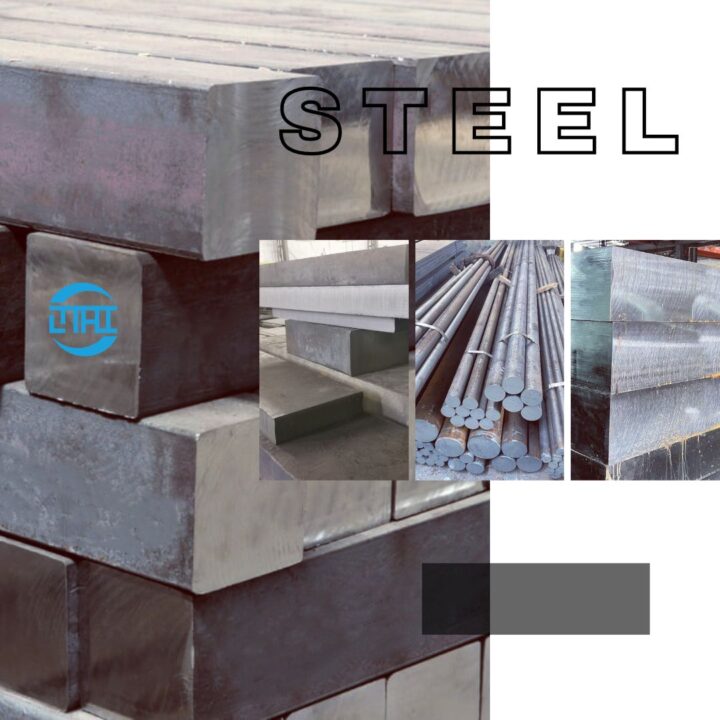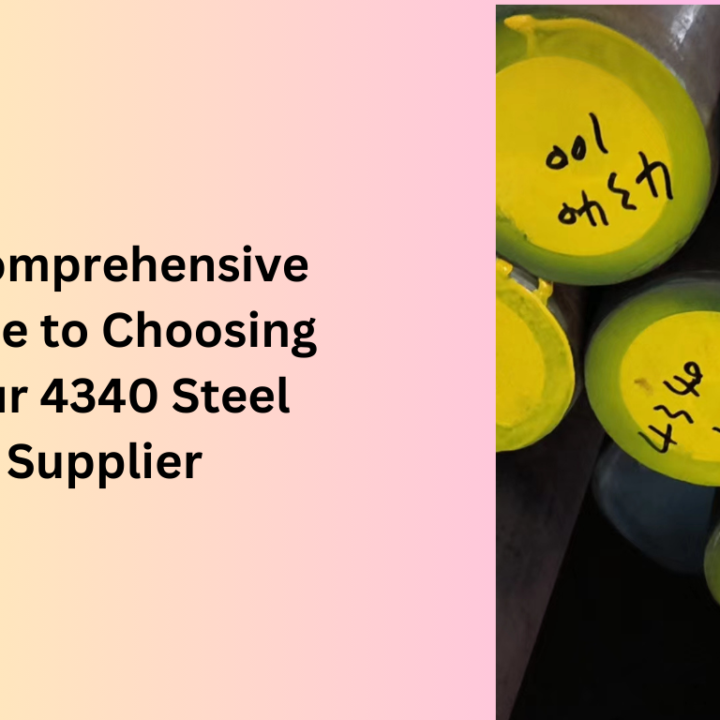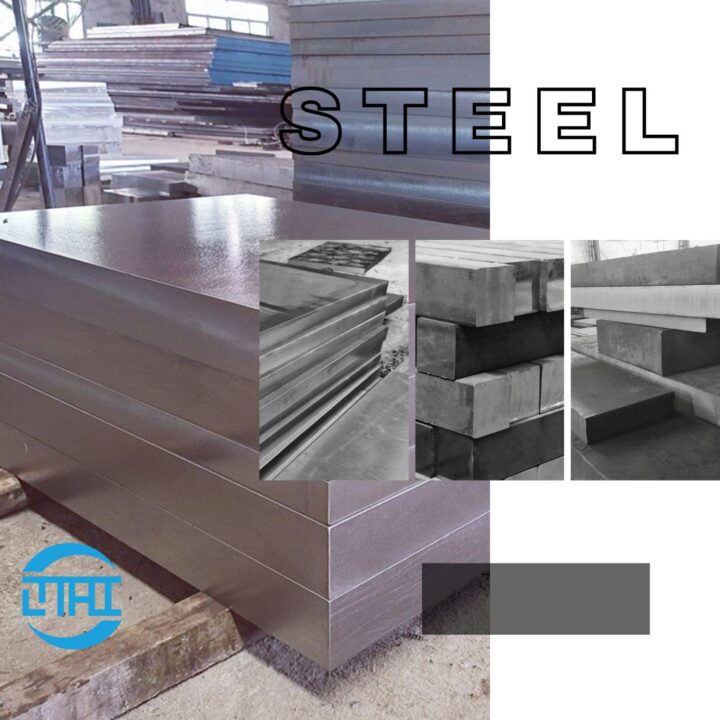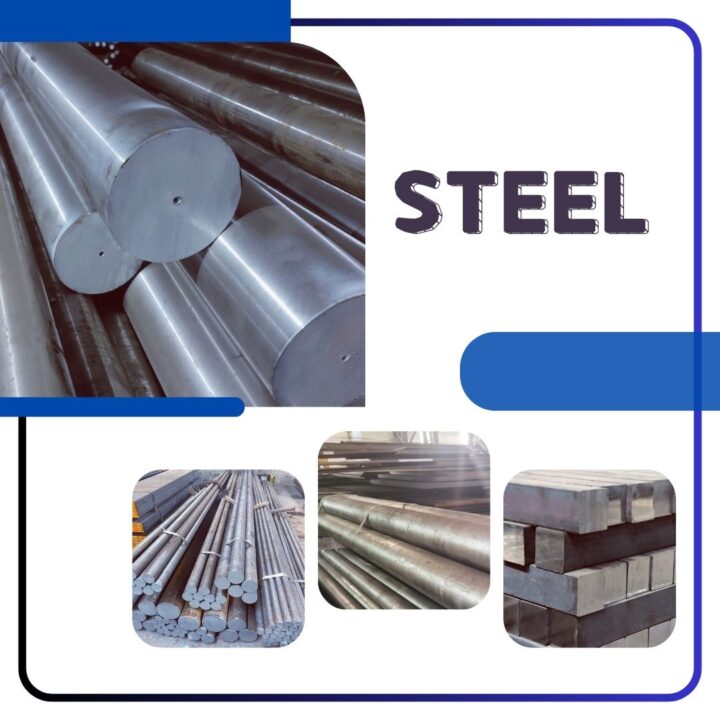Before diving into the comparison, let’s establish a basic understanding of what alloy steel is. Alloy steel is a type of steel that contains various alloying elements, apart from iron and carbon, to enhance its properties. These alloying elements can include chromium, nickel, molybdenum, and others, depending on the specific grade of alloy steel. These additions modify the steel’s mechanical properties, making it suitable for a wide range of applications.
Composition of 4130 vs 4140 Alloy Steel
4130 Alloy Steel:
4130 alloy steel is primarily composed of iron (Fe), carbon (C), chromium (Cr), and molybdenum (Mo). The approximate composition is as follows:
- Iron (Fe): 97.03-98.22%
- Carbon (C): 0.28-0.33%
- Chromium (Cr): 0.8-1.1%
- Molybdenum (Mo): 0.15-0.25%
4140 Alloy Steel:
4140 alloy steel, on the other hand, has a composition that includes iron (Fe), carbon (C), chromium (Cr), and molybdenum (Mo) as well. The composition is slightly different:
- Iron (Fe): 96.785-97.77%
- Carbon (C): 0.38-0.43%
- Chromium (Cr): 0.8-1.1%
- Molybdenum (Mo): 0.15-0.25%
Strength and Hardness
When comparing the strength and hardness of 4130 and 4140 alloy steels, both offer excellent mechanical properties, but there are notable differences:
4130 Alloy Steel:
4130 steel is known for its moderate strength and good toughness. It has a tensile strength of approximately 97,000 psi and a Rockwell hardness of about 28-32 HRC. This makes it suitable for applications that require a balance between strength and ductility.
4140 Alloy Steel:
4140 steel, on the other hand, is renowned for its high strength and hardness. It boasts a tensile strength of around 95,000 psi and a Rockwell hardness of 28-32 HRC. Due to its impressive strength, 4140 is often chosen for applications where superior strength is a primary requirement.
Applications
The choice between 4130 and 4140 alloy steels largely depends on the specific application. Let’s explore the typical uses of each steel:
4130 Alloy Steel Applications:
4130 is commonly used in the aerospace industry for components like aircraft engine mounts, landing gear, and structural parts. It’s also utilized in the automotive sector for manufacturing roll cages, suspension components, and other high-stress parts. Additionally, 4130 steel finds its place in the oil and gas industry for downhole tooling and drilling equipment.
4140 Alloy Steel Applications:
4140 steel is favored in industries where superior strength and hardness are required. It’s extensively used in the manufacturing of shafts, gears, axles, and crankshafts. The construction and mining industries often employ 4140 alloy steel for heavy-duty equipment and machinery components due to its excellent wear resistance.
Weldability
Weldability is a crucial factor to consider when choosing between 4130 and 4140 alloy steels:
4130 Alloy Steel Weldability:
4130 steel exhibits good weldability, making it suitable for applications that require welding. However, preheating and post-weld heat treatment are recommended to reduce the risk of cracking and improve the weld’s integrity.
4140 steel, while weldable, presents some challenges during the welding process. It is more prone to cracking, especially without proper preheating and post-weld heat treatment. Welding 4140 steel often requires careful consideration and skilled welding techniques.
Cost Considerations
Cost is a significant factor in material selection for many projects:
4130 Alloy Steel Cost:
4130 steel is generally more affordable than 4140 due to its lower chromium content. This can make it an attractive choice for budget-conscious projects that still require good strength and toughness.
4140 Alloy Steel Cost:
4140 steel is typically more expensive than 4130 because of its higher chromium content and superior strength properties. However, its increased cost may be justified in applications where its strength and hardness are indispensable.
Machinability
Machinability refers to how easily a material can be cut, shaped, and worked with using machine tools:
4130 Alloy Steel Machinability:
4130 steel offers good machinability. It can be readily machined using conventional machining processes, making it suitable for applications that require intricate parts or components.
4140 Alloy Steel Machinability:
4140 steel has slightly lower machinability compared to 4130 due to its higher hardness. However, it is still machinable with the right tools and techniques. Machining 4140 may require more effort and tool wear compared to 4130.
Corrosion Resistance
Corrosion resistance is an important consideration in environments where exposure to moisture or corrosive substances is a concern:
4130 Alloy Steel Corrosion Resistance:
4130 steel exhibits moderate corrosion resistance due to its chromium content. It can withstand some environmental corrosion but is not suitable for highly corrosive conditions without protective coatings.
4140 Alloy Steel Corrosion Resistance:
4140 steel, with its similar chromium content to 4130, offers comparable corrosion resistance. Like 4130, it may require additional corrosion protection in severe environments.
FAQs about 4130 vs 4140 alloy steel:
- Can 4130 and 4140 alloy steels be used interchangeably?
- While they share some similarities, it’s important to choose the appropriate steel based on your specific application. 4130 is ideal for balanced strength and toughness, whereas 4140 excels in high-strength, high-hardness scenarios.
- Are there any special welding considerations for these steels?
- Yes, especially for 4140 steel. Proper preheating and post-weld heat treatment are crucial to prevent cracking during
